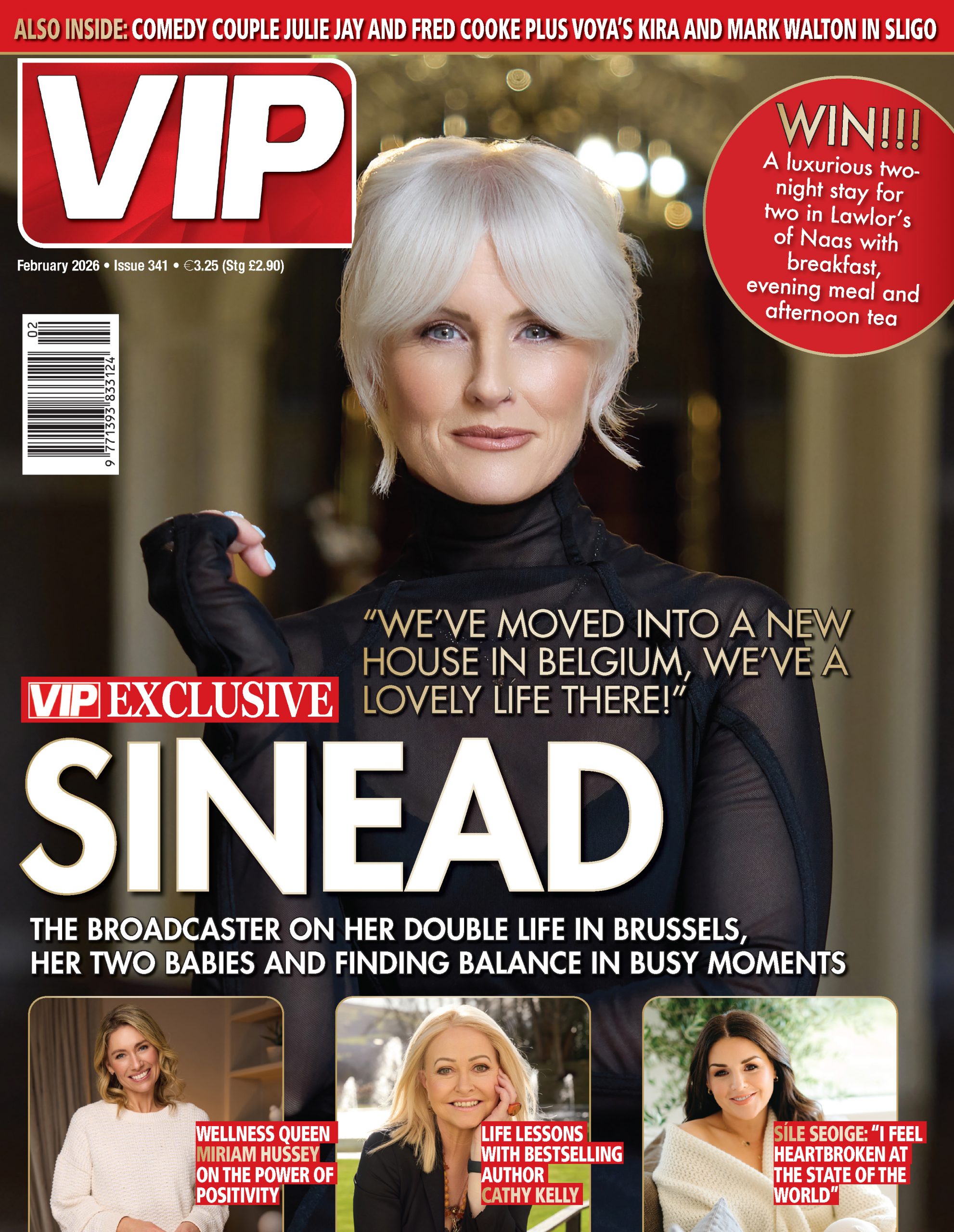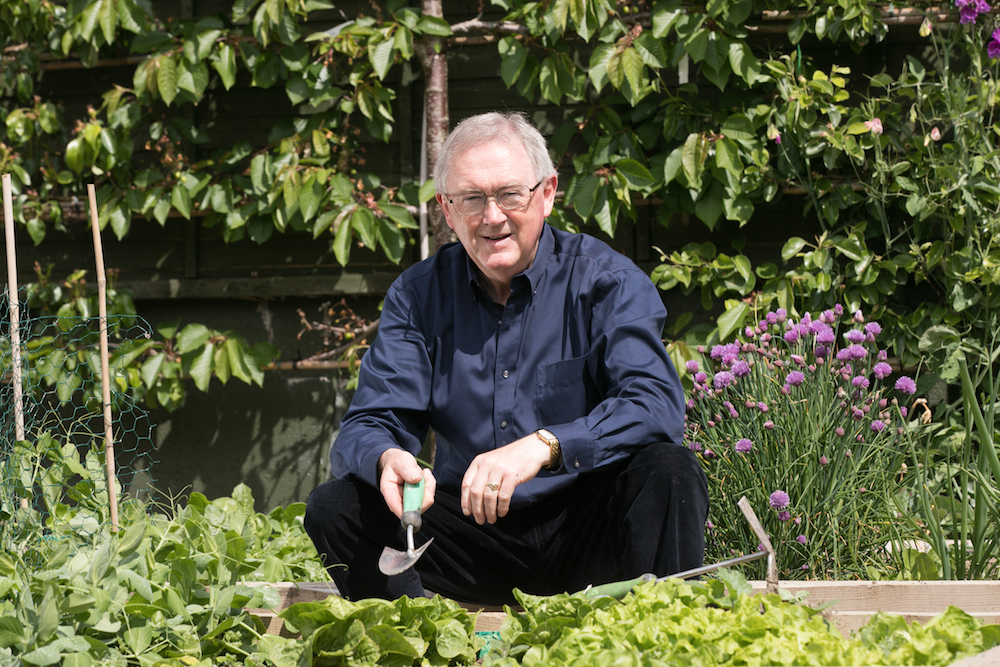
Down the phone from his home in Killiney, south Dublin, Sean O’Rourke is telling us about the greatest compliment he ever received. It was, he says, around 2am at a lock-in O’Donoghue’s Bar on Merrion Row. He was at the time working as a political journalist with the Sunday Press, and as always he had a nose for a story. Huddled in the corner, he sat with a backbencher TD who he was – unsuccessfully! – trying to pump for information. “He turned to me and said, ‘Sean O’Rourke, you are the greatest trier in town!’ I took it as the finest compliment!”
Indeed, right up until his very last broadcast of the Today with Sean O’Rourke Show, this father-of-six who celebrated his 65th birthday in lockdown, was still trying. He had, days before, written a note to actor Matt Damon asking if he’d like to join him as a guest on his very last show, and then carefully he had left this note with the staff of Cavistons Food Emporium in Glasthule, where he knew Damon was collecting provisions. “I don’t know whether he got it or not” Sean laughs today, “but if I’m proud of anything in my career, I’m proud I tried”.
Over the course of his seven year tenure on the mid-morning current affairs show, Sean reckons he has done in the region of 32,000 interviews, from robust grillings with minsters to sensitive chats with sufferers. He has been the wonderful combination of a host whose ease with guests was accompanied by formidable news and interrogative skills, along with sharp analysis and in-depth coverage. But all plaudits, of which there have been many – including a letter from President Michael D. Higgins thanking him for his service – he bats away with characteristic modesty. Sean is a nice guy.
A native of Portlaoise, he began his career with the Connacht Tribune in 1973, joined the Sunday Press in the late 1970s as a sports reporter and then moved to RTÉ in 1982, where his wife Caroline Murphy then worked, first in radio as a sports presenter, then as a radio producer on The Gay Byrne Show. They married in 1985 and have six adult children. In 2002, Caroline returned to college to do a full-time degree in organisational psychology, and since lockdown has been working flat-out as the government media advisor to Justice Minister, Charlie Flanagan. Meanwhile, Sean has been chilling out, playing a little golf, doing lots of reading, tending to his garden as you can see from these exclusive pictures here, and taking leisurely walks around his coastline and local Cabinteely Park, where this, our socially distant photoshoot, took place.
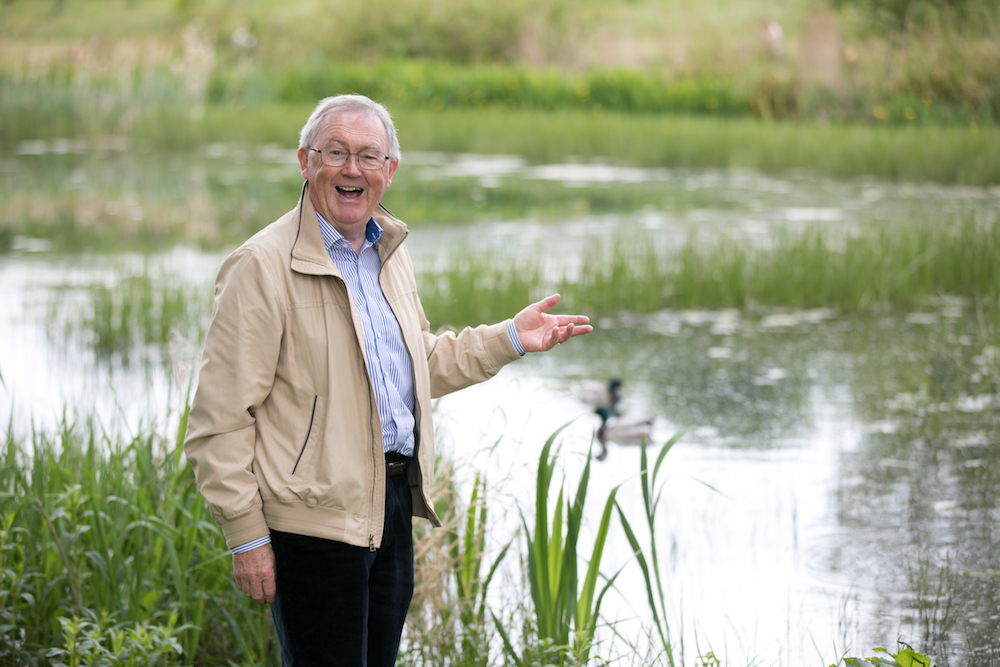
Sean, it’s been nearly a month since your retirement from what you have called, “the best current affairs chair in Irish broadcasting”. Retiring at the best of times can be hard, but retiring during a pandemic must be harder still?
It’s been an unusual one for sure. But the least of your worries in the middle of a pandemic is your retirement party! The final show day was actually really special. Sixty or seventy people from across the campus joined me on the steps of the radio centre and we all stood socially distant apart and had cake and speeches; it was a very happy day. It was almost like a one-person wedding! I got lovely messages and texts from colleagues, friends and the public. The postbag in the postroom was full, and bear in mind that a lot of those letters would have come from people in lockdown, who would have gone to a lot of trouble to send them – very thoughtful, very nice. The sense of goodwill, I can’t get over it, I really can’t. Even on this photoshoot today, people were waving at me from a distance and saying thank you. I have to say, it’s been reaffirming.
Your final show was quite the special send- off.
It was wonderful. There were messages from the Taoiseach, from Micheál Martin, from Michael Noonan, a lot of political leaders, and then Oliver Callan did a very funny send off for me.
And, of course, there was President Michael D. Higgins’ letter, thanking you for your service.
Yeah, but you know I always say that a broadcaster without a good football team, is like a goalkeeper without a good back-line. I had a brilliant team around me, led by producer, Tara Campbell. Without my team I would have been lost.
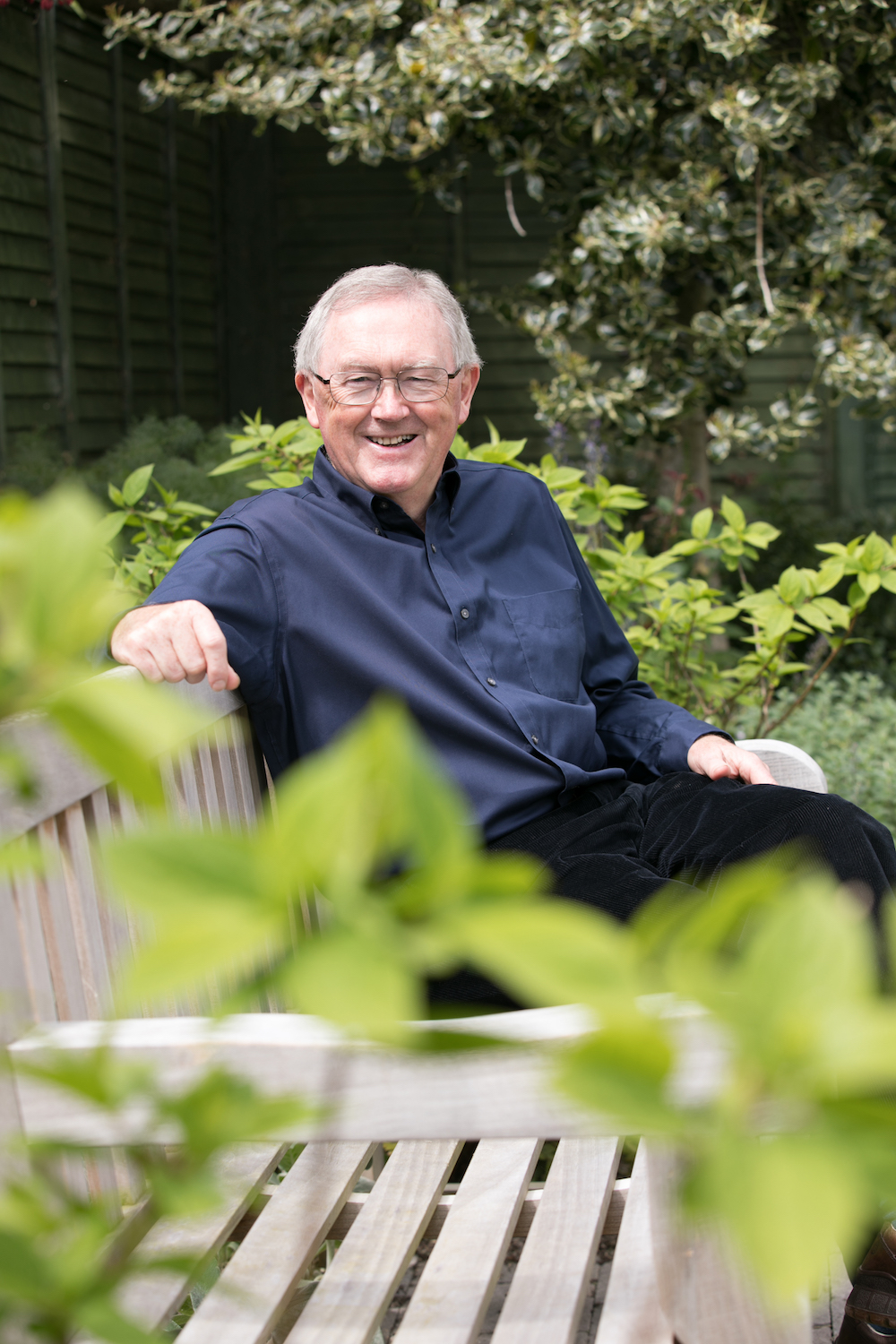
By your own estimate you have hosted some 5,000 editions of the programme. To go from that, to this, takes massive readjustment. How are you adapting to your new routine, at a time when we all have lost our routines?
One of my retirement plans was getting a greenhouse. I am not an expert gardener by any means, but I just love messing around with plants and seedlings. So that’s keeping me well occupied. I’m also in a very fortunate position that we have the Dalkey and Killiney coastline within the 5k, so I have been doing lots of cycling and walking. Like my mother-in-law used to say, count your blessings, and I am. We are healthy, we haven’t lost our jobs, okay we miss our kids, but think of the families with small children trying to work from home while doing home-schooling, they can’t go out to football or camogie or whatever it may be, we have it so easy in comparison. Sure I’d love to be up in Donegal playing golf, or walking along the beach at Rosapenna, but hey, it’s not much of a price to pay.
We see a motorhome parked up in your front driveway. No doubt this was part of the retirement plans?
It was! There’s a cable hooked up to a power point on the wall and every couple of weeks we start the engine, just to keep it ticking over. The original plan was that we’d head off in late May, and maybe for a month travel around Spain and France. But, Spain and France will still be there in a year’s time and we’ll be able to go then. In the meantime, once restrictions lift, we’ll take it around Ireland.
Does your son hope to get back to London soon?
Well, he’s a job lined up for September so that’s kind of his working target.
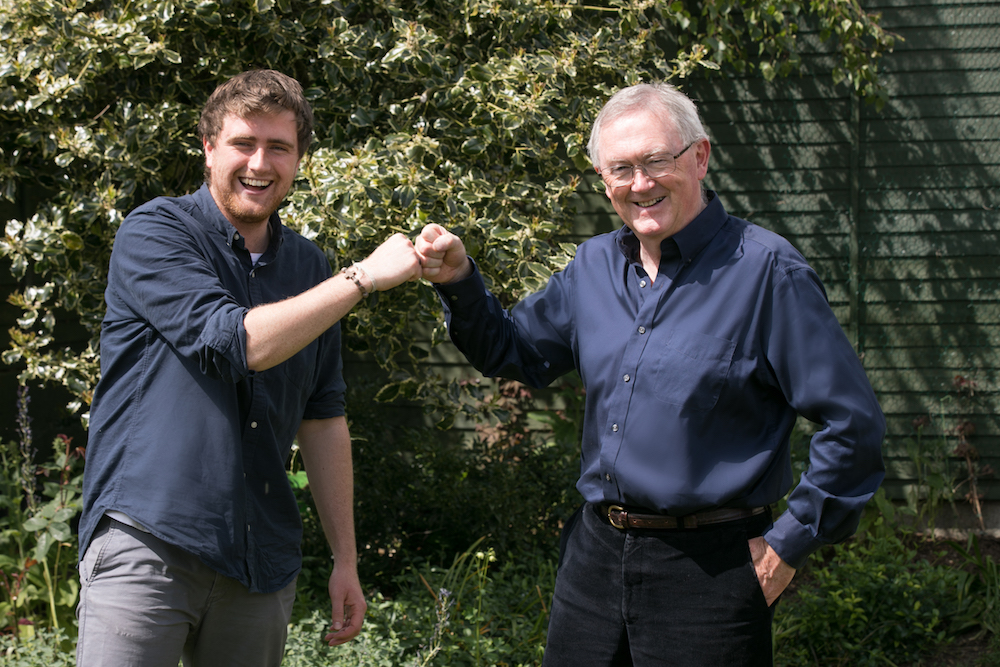
It will be interesting to see how schools return.
It will. Even though we knew this was coming I think we have all realised it’s going to be with us for a long time. Even if we get a vaccine we’re going to have to deal with the fallout for many years.
Your daughter Dr. Maeve O’Rourke – a barrister and lecturer in human rights at NUIG – got married in January to Labour candidate for Dublin South West, Ciarán Ahern, the beautiful pictures for which feature in our Vows section, on page 79. That must have been the last big happy family get-together?
It was, and we were so lucky that it happened back on the 4th of January and not now, on what was a beautiful crisp dry winter day.
Sean, you say, with characteristic modesty, that even though you did some 32,000 interviews over the course of the show’s seven year run, you were still always looking to do the perfect one.
I think occasionally you will go close to perfection, but it’s seldom you reach it. There’s always one question left to be asked! But one of the nicest compliments I ever got was very late one night at a lock-in, when a lowly backbencher TD who I was trying to pump for information, said to me, “Sean, you’re the greatest trier in town”. I took it as a great compliment and tried to apply it right up to my very last week in work. I sat down and on the back of an old greeting card wrote to Matt Damon asking if he’d like to be on my last show, and I left it in Cavistons in Glasthule and was assured he’d get it. I don’t know whether he got it or not, but if I’m proud of anything in my career, I’m proud I tried.
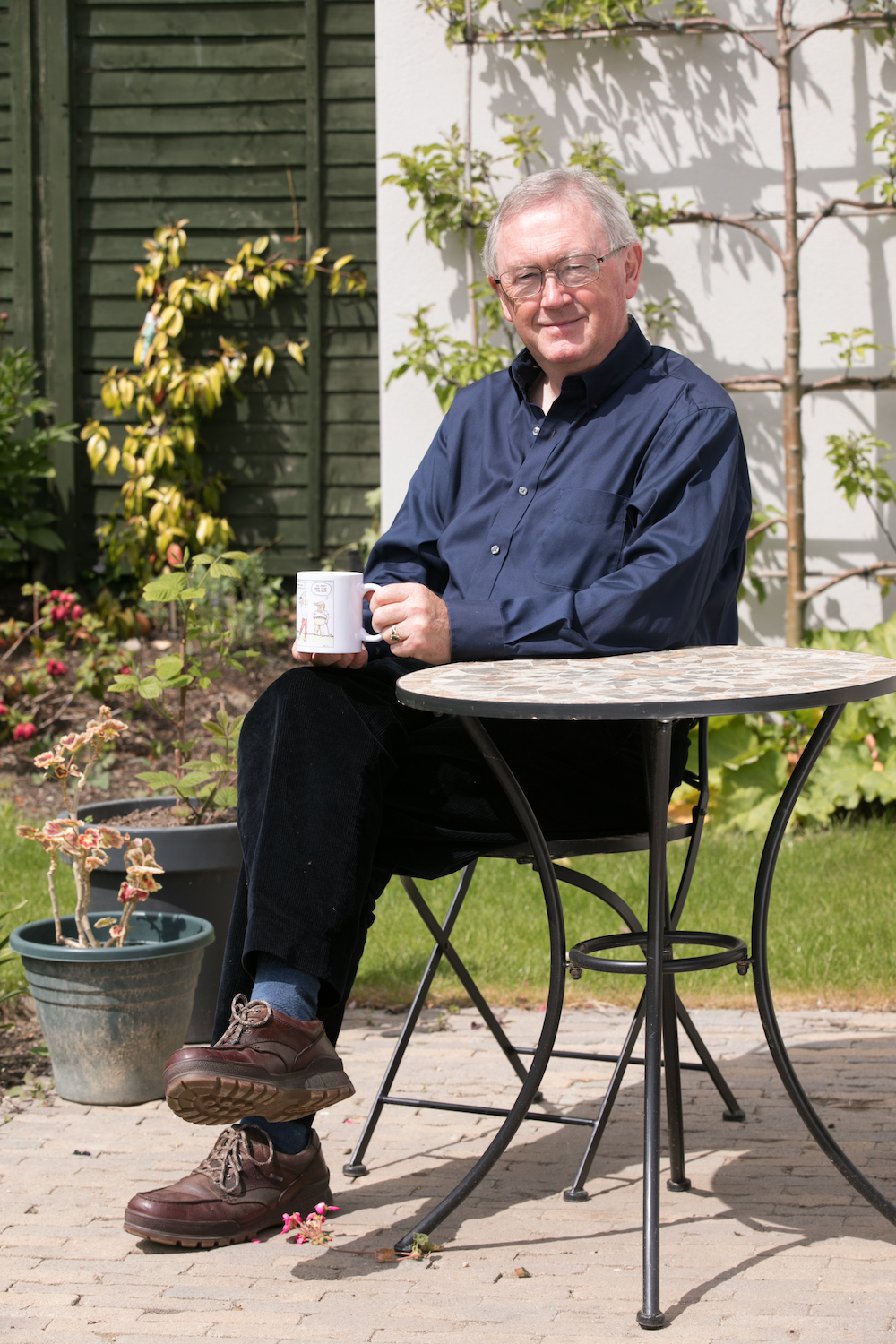
What a great story. While you often may have – literally! – hunted the story down, you never became the story. Was it a conscious decision always to maintain privacy and decorum while off air?
The thing about it is: it’s about the news, about the story, about the person. Your job as an interviewer is to ask the questions you think the audience want answered. You are their representative on the airwaves and it’s a huge privilege to be allowed into peoples’ cars, kitchens and bedrooms. My producer Tara had two mythical listeners in her head: Mrs Kelly in Roscommon putting on the kettle, and the farmer driving in to Killorglin in Kerry listening to the radio in his tractor cab. So in meetings when discussing a story, if it was of relevance to those mythical listeners we were away, and if it wasn’t, we found something else!
You talk with such affection for the show, are you missing it?
No! [laughing] It was great fun and it’s the best seat in current affairs broadcasting, but it’s relentless. My wife Caroline worked with Gay Byrne as a radio producer in the 80s and we met shortly after I started the job and he said, “I listen to himself and he’d doing quite well”, but he said, “Does he realise how relentless it is?” It is relentless. I mean nothing concentrates the mind like a red light telling you you are on air. It’s a great job, but it takes a bit out of you. Right now I feel like I’m on holidays!
Still though we get the sense, that for you, this job was a real honour.
It was. I was 58 when I was offered the position. I felt I had done a good job as a news broadcaster, five days a week for nearly 20 years, and I figured I’d done okay, and if nothing else had come by, that I’d had a pretty good career, nothing to be ashamed of, but then along comes this great opportunity. Initially the position was seen – in sporting terms – as maybe a hospital pass. Denis O’Brien had recruited RTÉ’s biggest star [Pat Kenny] and put him in the same Newstalk slot he’d been broadcasting in for RTÉ, so it was quite an attack on RTÉ, and there were all sorts of predictions that we would lose 100,000 listeners. It was a big thing to be asked to sit in that chair, there was a huge amount riding on it. But as the late RTÉ broadcaster Derek Davis predicted, not many people would ‘move the dial,’ because RTÉ is about so much more than any one individual. He was right, and as I’ve said a lot recently, I am the walking, talking, living proof that nobody is indispensable.
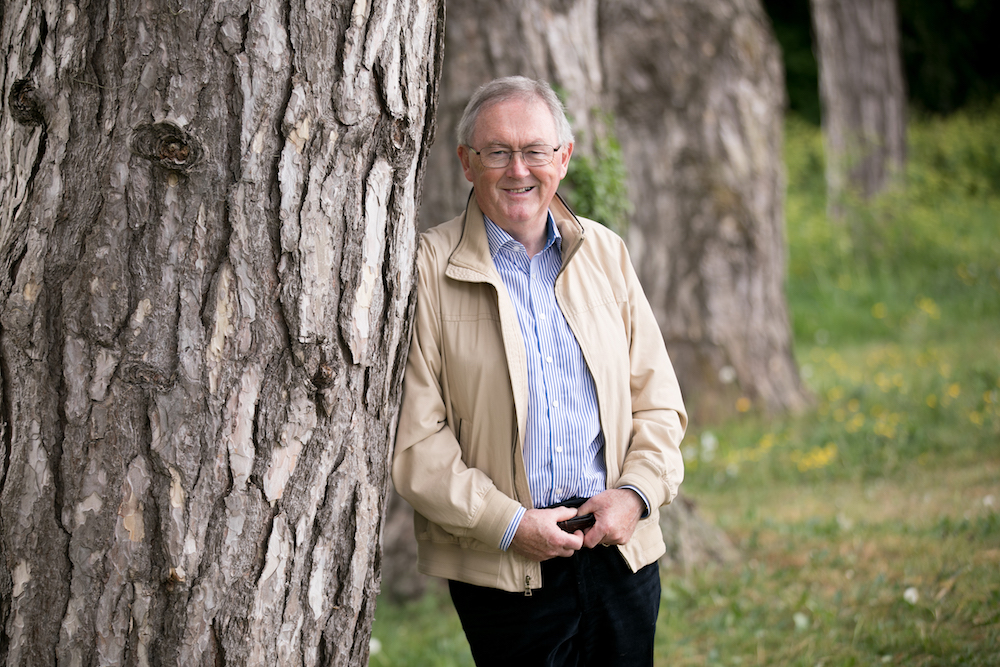
We know you will be returning to the RTÉ airwaves in the autumn in a different capacity as an independent contractor, but maybe you’ll also do a bit more writing too, because this, of course, was the first love. Even though you were told, ‘it’s your only hope’.
It’s true, I was told that! But, my English teacher Frank Canavan opened up a vista for me. I won’t
say he gave me a love for the English language, but he had a very humane and forward way of thinking and he treated the students like adults, long before we deserved to be treated like adults! He was a great encourager. Maybe from some teachers you would have got warnings, which I did, but from him you got encouragement, and that was a big factor. I knew from the time I was in fifth year that I wanted to be a journalist.
And once you found your niche, you were set. Then came the buzz of a newspaper print room, and you were hooked!
There is nothing like it! On a Saturday night I used to enjoy nothing more than on my break going and standing over the galley in the Sunday Press printing room, and the noise, the racket, the energy, the speed, spilling out papers with your name on it – it was magic and I was hooked. Now has never been a
more interesting time in Ireland to be a journalist; between coronavirus and Brexit – crikey! Collectively, I think RTÉ have been magnificent during the coronavirus crisis, in maintaining quality while radically adapting the way we do things, in our reporting, explaining, empathising, and in building a sense of national solidarity.
A silver lining you’re taking from this crisis is that you’re getting a little more time to read. Any book recommendations you could give us?
I’m reading Hamnet by Maggie O’Farrell, which is about Shakespeare’s son who died, and another
– and this was a Ryan Tubridy recommendation – Leadership: In Turbulent Times by Doris Kearns Goodwin about four American Presidents: Abraham Lincoln, Theodore and Franklin Roosevelt and Lyndon Johnson.
You should stick one in the post for Trump! (Back in a 2014 interview when Sean interviewed Trump, he memorably asked him about his hair, to which Trump would later refer to him as an “ass****”!).
[Laughing] I could say something…but I’m not going to give out about anybody!
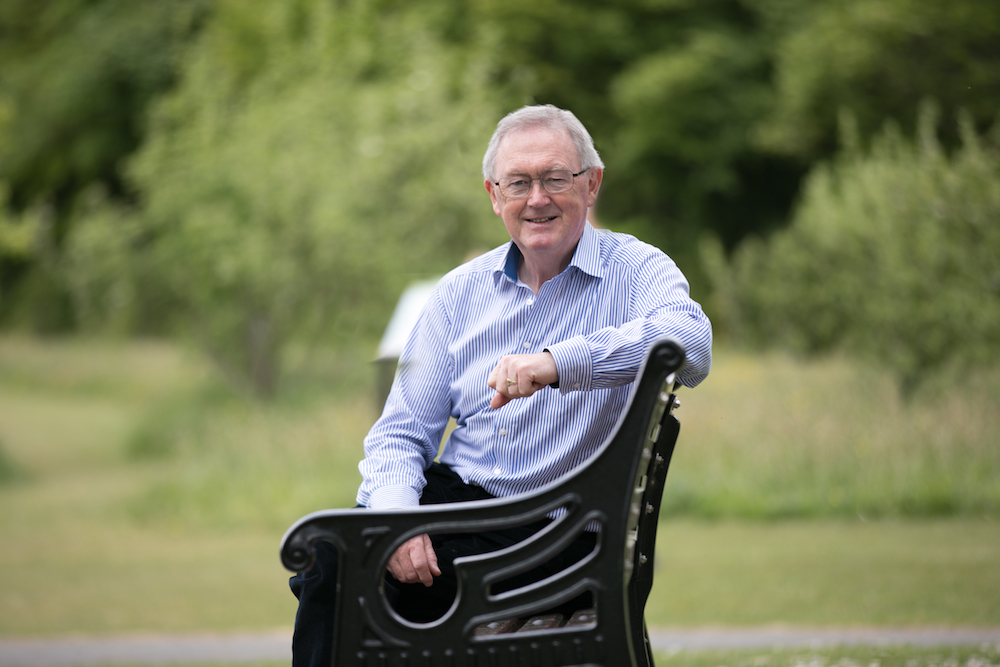
It’s amazing how life passes us by in a blink. Can you believe you have just turned 65?
Well, the calendar doesn’t lie! I feel incredibly fortunate – my father died six months past his 65th birthday. Unlike me and my generation, he didn’t have the wisdom to know that if you smoked you died young, and he had smoked from the age of 17 to 62, so he didn’t enjoy good health for the last 15 years of his life. People of my generation have the opportunity to do things differently, and I am very grateful for that.
What’s the plan now?
I’m not going to do anything intensive for a while. I’m taking a break. But I hope to work with student journalists in NUI Galway. I will return to the RTÉ airwaves as an independent contractor in the autumn. I’m not really in a position to say precisely what I’ll be doing, and it won’t be with quite the same intensity, but I’m happy I’ll have something to get my teeth into. I hope to do a few other bits and pieces too, maybe podcasting. But right now, I’m going up to Caroline’s friends allotment where the kale is 5ft high!
INTERVIEW: Bianca Luykx PHOTOGRAPHY: Evan Doherty;




